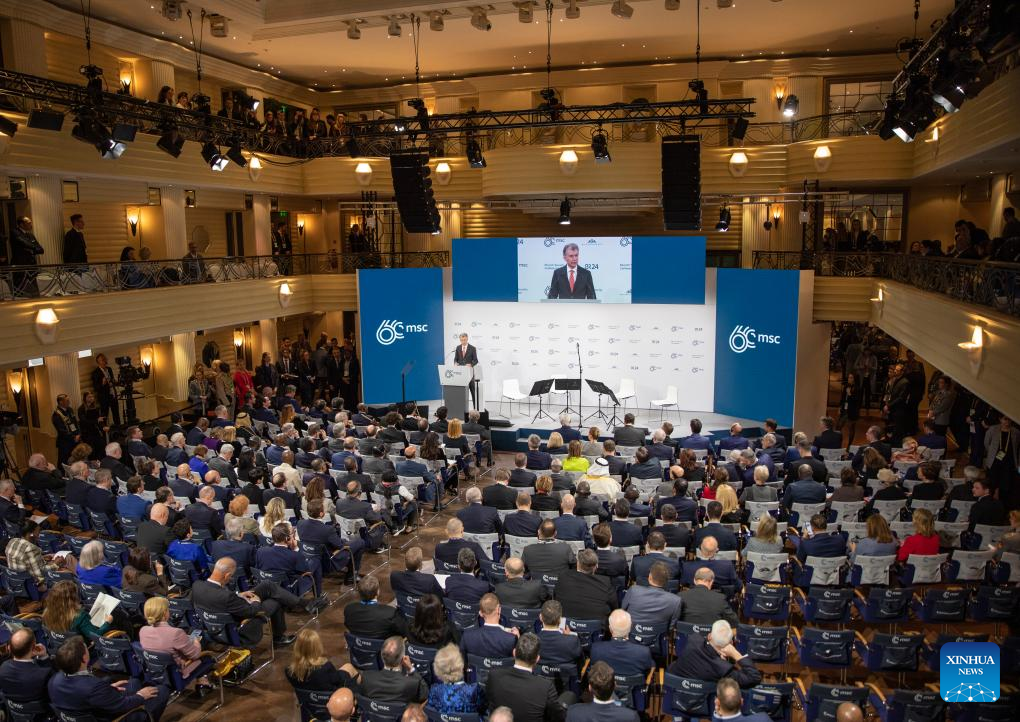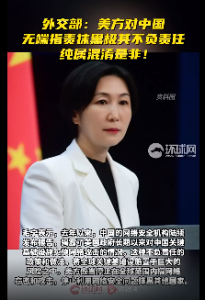MUNICH, Germany, Feb. 16 (Xinhua) — The 60th Munich Security Conference (MSC) opened here on Friday, with a spotlight on the need to boost cooperation and improve global governance.

In his opening remarks, MSC Chairman Christoph Heusgen expressed hope that participants look for silver linings in their discussions on the pressing security challenges against the backdrop of increasing geopolitical rivalry and economic uncertainty.
Ongoing conflicts including the Ukraine crisis and the Israel-Hamas conflict will be discussed at the three-day conference.
United Nations Secretary-General Antonio Guterres said in his opening speech that today’s global order is not working for everyone. “In fact, I would go further and say it’s not working for anyone.”
The global community is “more fragmented and divided than at any time during the past 75 years,” he said, noting that the world is facing nuclear danger, the climate crisis, and the risks stemming from Artificial Intelligence.
Guterres referred to this year’s edition of the Munich Security Report published on Monday, which warned of the “lose-lose dynamics” of inter-governmental interactions amid growing geopolitical tensions and rising economic uncertainty.
The mentality of prioritizing relative payoffs may spur these lose-lose dynamics while jeopardizing cooperation and undermining the international order, the report noted.
“Global governance in its present form is entrenching divisions and fueling discontent,” Guterres said. “We must work for solutions based on justice, with renewed urgency and solidarity.”
Meanwhile, MSC Chairman Heusgen sounded a hopeful note, saying that since many of the challenges the world faces are man-made, that means they can be changed.
Inaugurated in 1963, the MSC is an international platform for high-level discussions on global security issues and a venue for diplomatic initiatives to address security concerns.

